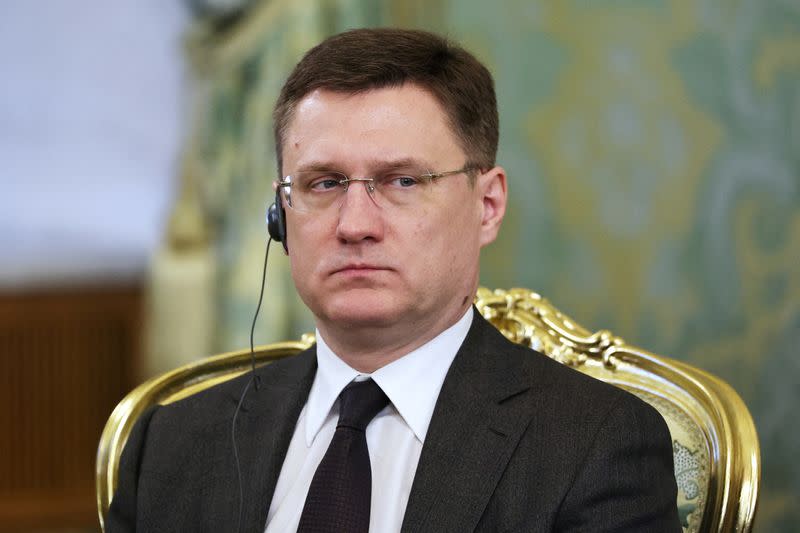Russia's Novak says fuel export bans will be used again

MOSCOW (Reuters) - Russia will use fuel export bans again as a way of regulating supply and demand, but for now the domestic market is well supplied, Deputy Prime Minister Alexander Novak said on Friday.
Russia this week suspended a partial gasoline export ban it had imposed from March 1 to pre-empt fuel shortages and stem a rise in prices after a spate of Ukrainian drone attacks on refineries and technical outages.
Novak said the ban had worked as intended. "This is a normal instrument and will be used in the future. We always have the possibility to regulate this situation," he said in comments posted on Telegram by a Russian TV journalist.
Novak said the mechanism was analogous to that used by the OPEC+ grouping.
"Our task here is not to reduce production and processing, but to regulate the domestic market by balancing it through exports," he said.
The ban has been suspended until June 30, but restrictions will apply again from July 1 to Aug. 31.
Novak said the suspension would lead to higher refinery utilisation and exports, bringing in additional foreign currency revenue.
Asked by a reporter if there was a risk of gasoline prices rising again on the domestic market, Novak replied: "There are no threats. We keep our finger on the pulse and hold weekly meetings with our oil companies and the Federal Monopoly Service of the energy ministry.
"We can always make any decision in order to provide 100% of the domestic market with the necessary petroleum products."
(Reporting by Mark Trevelyan; Editing by David Goodman)

 Yahoo Finance
Yahoo Finance 